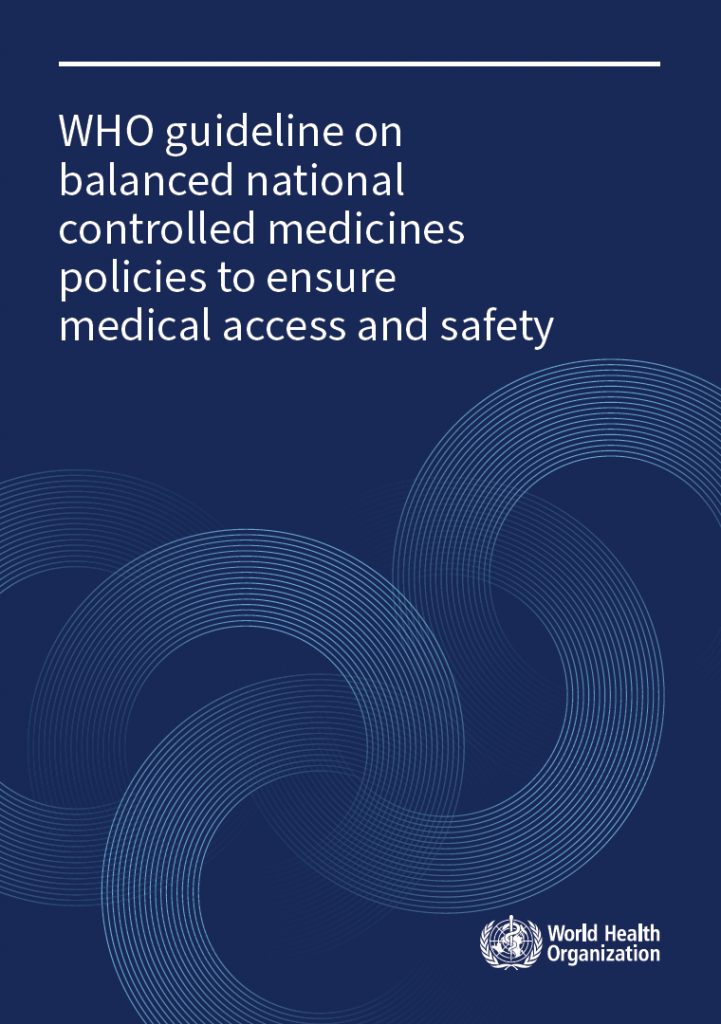New WHO Guideline on Access to Controlled Medicines

The World Health Organization has released its 2025 Guideline on Balanced National Controlled Medicines Policies to Ensure Medical Access and Safety, replacing the Guideline of 2011.
These guidelines provide evidence-based recommendations to help countries develop policies that balance two critical needs:
- ensuring access to essential controlled medicines such as opioids, benzodiazepines, and anti-seizure medicines for those with legitimate medical needs, including palliative care, pain management, and mental health; and
- preventing misuse and diversion that could cause harm.
For India and other low- and middle-income countries, this document is a vital resource to address the vast unmet need for pain relief and palliative care while safeguarding communities. We welcome these guidelines as an important step toward achieving universal access to compassionate, safe, and equitable care.
The recommendations start with the Guiding Principles:
- All people have the right to enjoyment of the highest attainable standard of health, a state of complete physical, mental and social well-being and not merely the absence of disease orinfirmity.
- Controlled medicines are crucial for managing many health conditions and for treating illness. Access to essential controlled medicines is a component of the rights to both healthand life.
- National policies on controlled medicines should be balanced to ensure safe, appropriateuse, ensuring access for medical and scientific need (that is not interrupted and is sustainable and continuous), while avoiding harmful consequences for individuals and societies.
- All national policies should be tailored to the needs and requirements in the social context and the resources of the population, while recognizing individuals’ right to the highest attainable standard of health.
- Member States and health-care providers should ensure that patients, their families and caregivers know their rights to self-determination, non-discrimination, accessible and appropriate health services and confidentiality.
- Governments should invite patients, advocacy groups, health professionals, academia, professional societies, civil society and other affected groups to participate in formulation of health policy.






